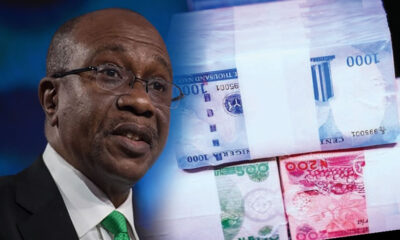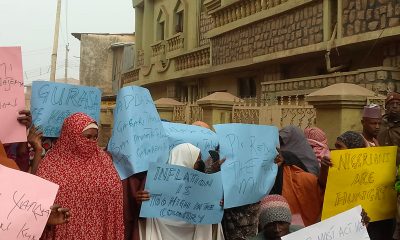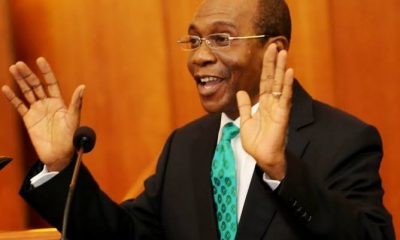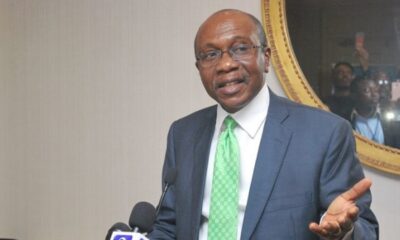National
How inflation rose 67 times under suspended CBN Gov Emefiele

Nigeria’s inflation rate rose not less than 67 times since June 2014,
According to PUNCH Analysis of the Inflation Rate data provided by the Central Bank of Nigeria, the consumer price index was 8.2 per cent in June 2014 when the suspended CBN Governor, Godwin Emefiele, took office.
However, the country currently struggles with an inflation rate of 22.22 per cent as of April 2023. The inflation rate rose by 0.03 per cent to 22.41 per cent in May, the highest rate in 17 years.
This means that inflation rose by 14.02 percentage points while Emefiele ran the affairs of the apex bank.
A breakdown of the number of times inflation rose showed that it rose thrice between June and December 2014.
By 2015, inflation rose 10 times, except in July and October of that year.
Inflation rate became worsened in 2016 as Nigeria hit a double-digit figure of 11.38 per cent in February of that year, and inflation was on the rise throughout the year, rising 12 times.
The economy entered a recession in 2016, the first one under the suspended CBN boss.
The situation improved in 2017 as inflation only rose in July. However, it recorded different rates of decline in the same year.
The improvement was almost maintained in 2018 but inflation rose four times during the year, specifically in August, September, November and December.
By 2019, inflation rose six times, indicating Nigerians were paying more for their purchases.
Nigeria suffered another recession in 2020 as the COVID-19 pandemic adversely affected economical activities.
In the same year, inflation was on the rise from 12.13 per cent in January to 15.57 per cent in December.
The situation improved slightly in 2021 as inflation rose four times that year, precisely in January, February, March and December.
However, the improvement faded in 2022 as inflation rose 10 times except in January and December.
By the end of 2022, inflation had risen 63 times under the detained CBN apex bank boss.
Inflation has been on the rise throughout 2023, from 21.82 per cent in January to 22.22 per cent in April.
This overall increase occurs despite the tightening monetary policies of the Central Bank of Nigeria to curb inflation.
Last year, the apex bank decided to continuously hike interest rates as well as introduce the naira redesign policy to control the amount of cash in circulation.
The apex bank had increased the MPR from 11.5 per cent earlier last year to 18.5 per cent in May this year across seven consecutive rate hikes.
Within a period of one year, from May 2022 to May 2023, Nigeria’s interest rate rose by about 800 basis points.
The CBN Governor, Godwin Emefiele, had said the decision to keep hiking the MPR was taken to address inflation.
The governor said loosening the MPR would negate the objective of damping pent-up aggregate demand, which fuelled inflation.
Despite the adverse effect of the hike on the organised private sector, the CBN maintained that it would continue the hike until inflation falls below 15 per cent.
“For as long as that gap between inflation rate and the MPR is wide, giving a negative interest rate, it discourages investments, savings mobilization (particularly within the domestic economy) and also fast track capital outflows. The reasons for increasing the Monetary Policy Rate before have not gone, so we will keep at it while being mindful of the rebound effect of some of those measures.”
Contact: info@royalnews.com.ng

















